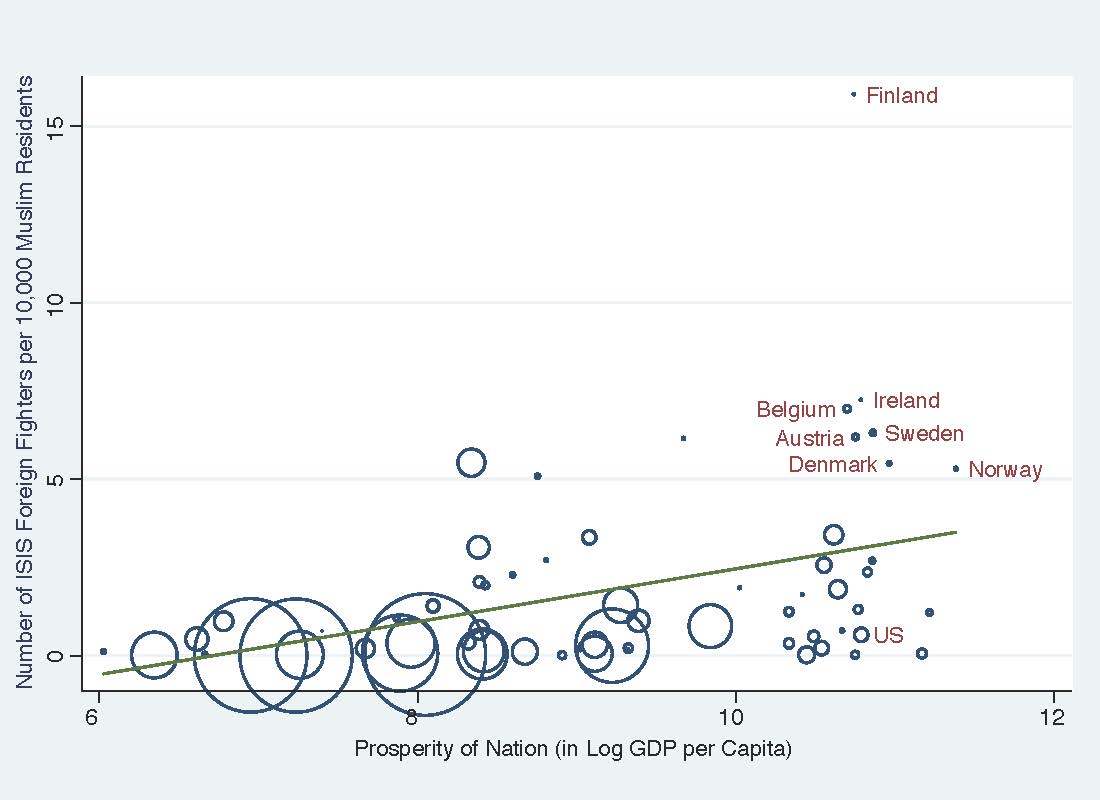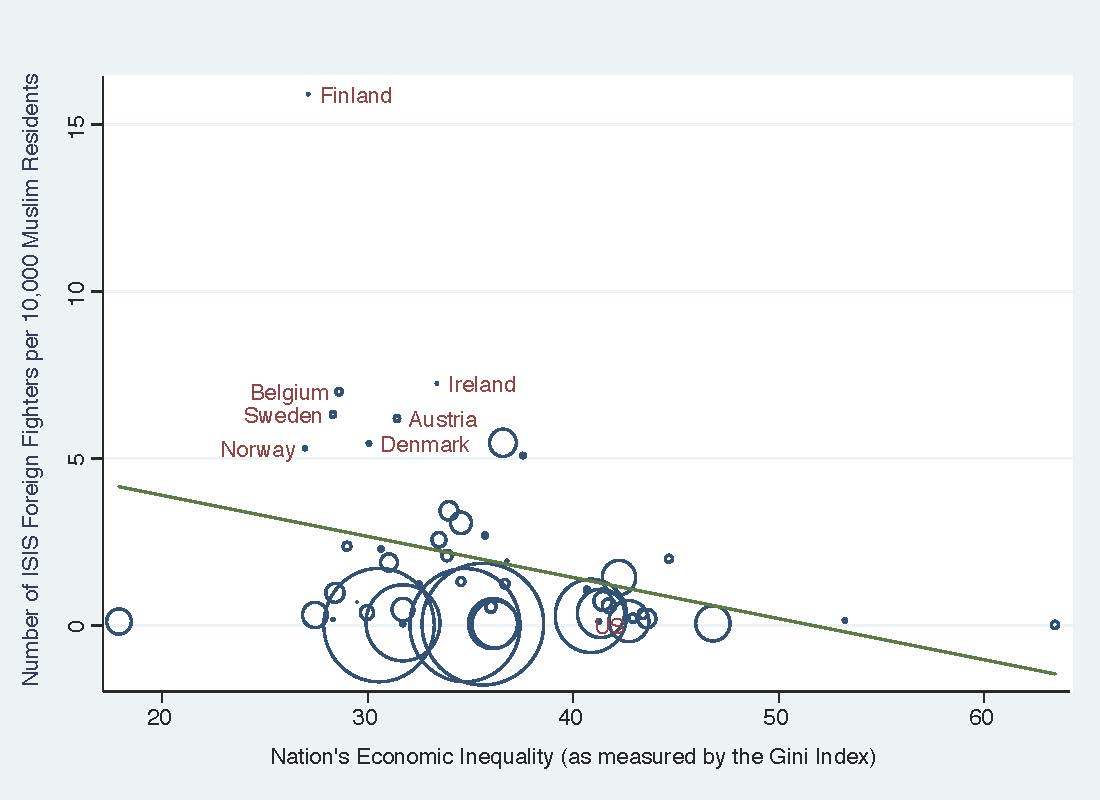Featured Faculty
Henry Bullock Professor of Finance & Real Estate; Director of the Crown Family Israel Center for Innovation; Co-Director of the Guthrie Center for Real Estate Research
Amid mounting fears in Western countries of homegrown terrorism and sleeper cells, the best defense against terrorism is to promote social assimilation.
We conducted a systematic analysis of the global phenomenon of ISIS foreign fighters that shows that isolation plays an important role in how Muslims become radicalized—a factor that has been widely overshadowed by the prevailing theories that blame poverty in the Middle East for the spread of terrorism.
Our research examines 30,000 foreign fighters from at least 85 countries who are known to have joined ISIS as of December 2015. Although the great majority of ISIS recruits come from the Middle East and the Arab world, many foreign fighters come from Western nations, including the European Union, Australia, New Zealand, and Canada.
Instead of focusing on the total number of ISIS recruits—which puts emphasis on countries such as Tunisia, Saudi Arabia, Turkey, and Jordan—we compared the number of radicalized recruits relative to the size of the Muslim population in each country. Countries with relatively small Muslim populations, but a comparatively significant number of ISIS foreign fighters, suddenly rose to the top of the list: Finland, Ireland, and Belgium, among other Western European countries. We find that instead of coming from poor and economically disadvantaged countries, the highest proportion of ISIS foreign fighters are recruited from within largely prosperous and socially progressive countries.
In fact, several European countries in our list’s top ten are known for being particularly egalitarian according to the country’s Gini coefficient, which measures how wealth is distributed across a society. For example, Norway ranks fourth in the world in equality, yet ninth in ISIS foreign fighters.
Although it is difficult to theorize exactly why people join ISIS, acknowledging the role of assimilation draws attention to what may be the most effective interventions.
The size of the circles below reflects the size of different countries’ Muslim populations. As the figures illustrate, a number of relatively wealthy and egalitarian Western European countries have a substantial number of ISIS foreign fighters relative to the size of their Muslim population. (Many of the large, unlabeled circles represent predominantly Muslim countries in the Middle East.)


Finland ranks as the 11th most egalitarian country in the world—yet is the largest supplier of radicalized recruits. Belgium is the third largest source of ISIS foreign fighters, even though it ranks as the 12th most egalitarian country. Sweden, where two Swedish nationals in late 2015 were found guilty and sentenced to life imprisonment on terror charges related to the beheading of two civilians in Syria, ranks 15th in egalitarianism and fourth in ISIS foreign fighters.
Why do egalitarian Western European countries have disproportionately large numbers of ISIS foreign fighters? One important reason, we argue, is because they are ethnically and linguistically homogenous. In fact, the more homogenous the host country is, the greater is the difficulty in assimilation experienced by immigrants such as Muslims from the Middle East. As other research has shown, isolation induces some of them to become radicalized.
The United States’ “melting pot” culture that traditionally promotes immigration and assimilation may be one of the best deterrents against radicalizing people to join ISIS and become terrorists more broadly. And that may explain why the United States ranks a distant 36th in the number of ISIS foreign fighters compared to its Muslim population.
Worldwide, the threat of terrorism is real, and the need to understand what draws people into terrorism is imperative. ISIS foreign recruits engage in combat in Syria and Iraq, gaining battlefield experience against ISIS enemies. Then they can easily return home on their government-issued passports, largely undetected. They come back trained in terrorist tactics and equipped to create terror networks to carry out attacks at home.
Although it is difficult to theorize exactly why people join ISIS, acknowledging the role of assimilation draws attention to what may be the most effective interventions. The evidence in our research warns against the dangers of isolation within homogeneous Western countries, where anger and discontent among Muslim youth who feel marginalized make them prime targets for ISIS recruiters. Our research findings may offer hope in the battle against terrorism. Domestic policies and programs that promote assimilation and break down the silos of ethnic ghettos not only open the doors for isolated groups and benefit society as a whole, but they also may serve as the best defense against radicalization.
Efraim Benmelech is the Harold L. Stuart professor of finance and the director of the Guthrie Center for Real Estate Research at Kellogg School of Management, Northwestern University and a research associate at the National Bureau of Economic Research.
Esteban Klor is a professor of economics at Hebrew University of Jerusalem and a research fellow at the Center for Policy Research.